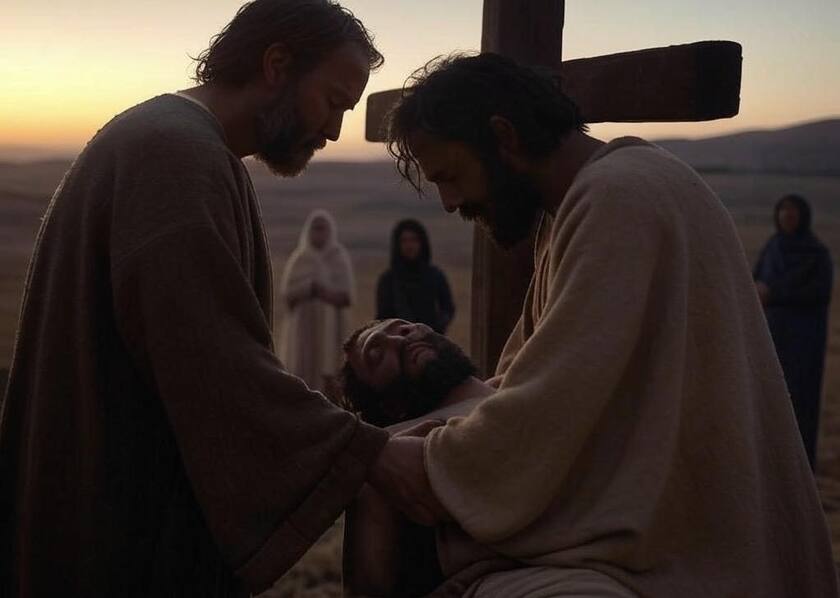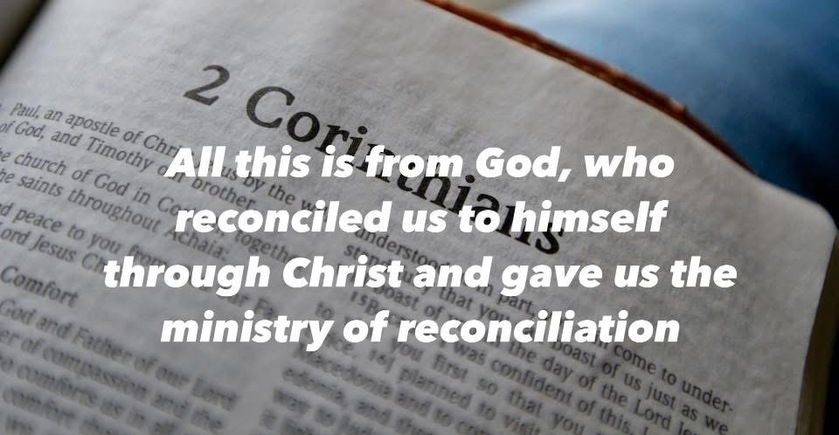Faithful in the In-Between: Sabbath Rest and the Kingdom Hope of Joseph and the Women
Luke 23:50-51
Now there was a man named Joseph, from the Jewish town of Arimathea. He was a member of the council, a good and righteous man, who had not consented to their decision and action; and he was looking for the kingdom of God.
The Sabbath was drawing on and the people were preparing to rest according to the commandment. So, Jospeh of Arimathea prepared the resting place of our Lord Jesus. Joseph’s actions embody a faithful response to God’s will, even in a moment of crisis.
Joseph is said to be a "good and righteous man". He was a member of the Sanhedrin, the Jewish council. And most interestingly he was "looking for the kingdom of God". In the gospel of Matthew 27:57-60, he is called a "rich man" and a "disciple of Jesus", but secretly, for fear of the Jews, (John 10:38-42). He "went boldly" to Pilate to request Jesus’ body, showing courage given the political risks. And he bought a linen cloth for the burial, (Mark 15:43-46). And it's said that he worked with Nicodemus to prepare Jesus’ body, and the tomb was in a garden near the crucifixion site. Per Jewish law, he wrapped the body of Jesus in linen and placed it in his own unused tomb, fulfilling Jewish burial customs that required prompt burial (Deuteronomy 21:23).
In the early Christian texts, like the apocryphal Gospel of Nicodemus (Acts of Pilate, 2nd-4th century), Joseph’s story is expanded upon, claiming he was imprisoned for his role but miraculously freed, though these accounts are not canonical. In these writings we also hear more about Nicodemus. Like Joseph, Nicodemus was likely a secret disciple, balancing his Sanhedrin status with faith in Jesus. His costly contribution reflects a deep devotion to Jesus' teachings. The Gospel of Nicodemus portrays him defending Jesus before Pilate. Though evidence is scarce, tradition suggests he became a martyr for Christ.
And then there were the ladies...
(Read Luke 23:55-56)
Women who followed Jesus from Galilee, including Mary Magdalene and Mary the mother of James (Luke 24:10), also observed the burial. They saw where Jesus was laid and prepared spices and ointments but rested on the Sabbath per the commandment. In Matthew 27:61 we're told that Mary Magdalene and "the other Mary" sat opposite the tomb, watching. They observed the burial to ensure proper rites and planned to anoint the body after the Sabbath, a task woman often performed in Jewish tradition.
These women were very loyal disciples and were financially supporting Jesus’ ministry (Luke 8:1-3). Their role as witnesses to his death and burial is crucial, as they later reported the empty tomb to the other disciples (Luke 24:1-10).
Joseph’s courage, Nicodemus’ generosity, and the women’s steadfast presence offer examples of faithfulness under pressure for us as we strive to seek the kingdom of God today. Joseph’s dissent from the council and his faithful devotion, the women’s quiet witness, are examples for us now as we wait upon that kingdom. Their collective efforts ensured Jesus’ burial honored God’s law and prepared for the resurrection, a pivotal "in-between" moment.
Luke's gospel emphasizes righteousness as living in alignment with God’s will, often through faith, obedience, and compassion, even in challenging circumstances. For example: Zechariah and Elizabeth (Luke 1:6) are said to be "righteous before God," walking blamelessly in the commandments, setting the stage for John the Baptist’s ministry. Simeon (Luke 2:25), said to be "righteous and devout" was a man waiting for the "consolation of Israel" (a kingdom-related hope), Simeon recognizes Jesus as God’s salvation. The Widow’s Offering (Luke 21:1-4), and sacrificial giving reflects righteousness through humble devotion. Her devote attitude of giving mirrors Joseph's opposition to the council, contrasting with the self-serving actions of the religious leaders.
The kingdom of God is central to Luke’s Gospel, portrayed as God’s reign breaking into the world through Jesus’ life, death, and resurrection. Luke frames the kingdom as unfolding through Jesus’ journey to Jerusalem (Luke 9:51–19:44), culminating at the cross (Luke 23:46) and resurrection (Luke 24:6-7). In these characters at Jesus' tomb, we are given a glimpse at what our conviction and faith should reflect as we experience the "in-between". Joseph was "looking for the kingdom of God". Jesus had announced to his followers, "The kingdom of God is in your midst" (Luke 17:21), evident in his miracles (Luke 11:20), found in forgiveness (Luke 7:48-50), and lived out in the inclusion of outcasts (Luke 15:1-2). The women from Galilee (Luke 23:55-56) embody this by faithfully following Jesus and participating in the kingdom’s community.
Joseph and the women act faithfully in this threshold space, as we are all awaiting the kingdom’s fuller revelation at Easter. The kingdom is present in Jesus’ ministry (Luke 10:9) but awaits consummation (Luke 22:30). Joseph’s "looking", and the women's "watching", reflects this dual hope, acting faithfully now while anticipating God’s ultimate victory. All act faithfully without full clarity, trusting the kingdom’s promise. This challenges us to live justly today, even when God’s plan seems obscured.
For your personal reflection:
The kingdom Joseph waited for was revealed through Jesus’ death and resurrection. How does this "already and not yet" kingdom shape your hope or actions today?
And while you're at it...
"On the Sabbath they rested according to the commandment." (vs. 56b)
How might Sabbath rest, literal or spiritual, shape your waiting for God’s promises today? Is there a "commandment" God calls you to obey, even when the path feels unclear?
As we reflect on Christ's kingdom during this Holy Week, how might we make time for resting in Him?
From my experience, it often boils down to loving God and others (Matthew 22:37-39). This might mean faithfulness in small, daily acts; kindness, prayer, or obedience to what we know, while the bigger picture still remains foggy. It’s not a rigid rule but a posture of devotion, trusting that God’s guidance will ultimately emerge.
Rest in that posture of devotion that Joseph and the women embraced.




















